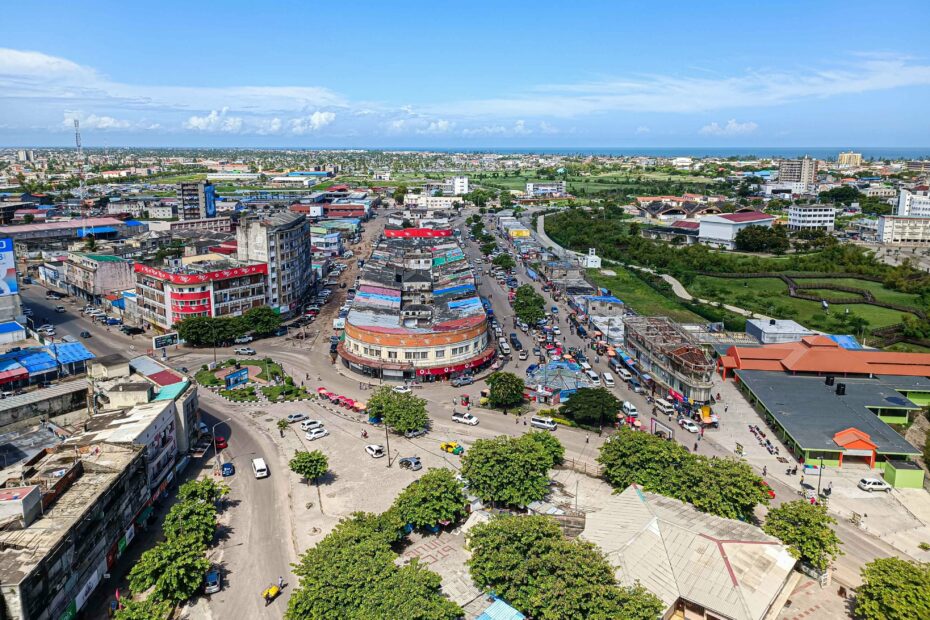The first of three years of MUDAR, a project co-funded by the European Union, has recently come to an end. The objective of MUDAR is to promote the urban development of Beira, a city in the centre of Mozambique, by strengthening the technical and management capacities of the City Council. The ultimate aim is to improve the living conditions of the population of Beira. This first newsletter recounts the main activities that have taken place in these first months, and what is to come.
Beira is a fast-growing city with a population of around 700,000 inhabitants, most of whom live in vulnerable socio-economic conditions and face the consequences of climate change on a daily basis, such as seasonal floods and cyclones. The city is often characterised by unplanned urbanisation, and by precarious infrastructure such as sewerage, water drainage, and secondary and tertiary roads. There are also deficiencies in the provision of certain services such as waste management and access to drinking water.
It is also a city undergoing rapid transformation, where major multilateral and bilateral donors, such as the European Union, the World Bank, and Dutch cooperation, are investing large sums in strategic and priority areas for the municipality and the Mozambican authorities. Target areas are the drainage of water, sewerage, coastal protection, waste management and urban planning.
MUDAR takes place in this context. The project, which is led by the Autonomous Province of Trento, will provide training on several modules in the field of urban development and planning, to the administrative and technical staff of the Beira City Council, one of the partners of the project. The objective is to better prepare the municipality to tackle the many challenges the city faces, as discussed here.
A pilot project in the coastal neighbourhood of Macuti will also be implemented. This represents a concrete opportunity for the City Council to put into practice what was learnt during the training. In fact, it is envisaged to carry out a participatory planning with the population and other key players that integrates technical and social issues, public services and good governance.
MUDAR also aims to accompany the municipality in a process of ‘digital transition’ through the use of information technology and the development of private initiative with the aim of promoting innovative services for sustainable urban management and encouraging the development of micro, small and medium-sized enterprises. This and this article talk about these aspects, and in particular on the work to involve the population and various social and economic actors in Beira and, specifically, in Macuti.
A key component of MUDAR is the creation and development of a community of practice, understood as a network of people, organisations and entities that share a theme and objective and come together to improve and learn from each other. As part of this process, a study visit to Maputo by a delegation from Italy and Beira took place in April, with the purpose to link similar initiatives in Mozambique. Other exchanges between local authorities and organisations will take place during the course of the project, as detailed here.
MUDAR’s will be managed by PAT and the Beira City Council, in partnership with the University of Trento, Universidade Zambeze, the Instituto de Formação em Administração Pública e Autárquica of Beira (IFAPA), the Centro per la Cooperazione Internazionale of Trento and the Consorzio Associazioni con il Mozambico, an Italian NGO that will follow the project’s operations from Beira.



